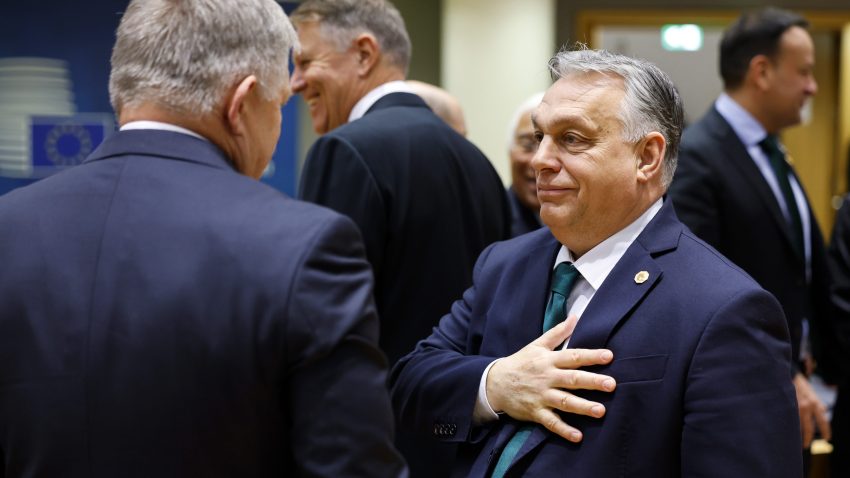Sometimes, after weeks of frenzied build-up, a much-anticipated showdown doesn’t live up to the hype. And as last week’s European Council summit illustrated, that observation is as applicable to politics as it is to sports.
Having agreed to start negotiations for Ukraine to join the European Union in mid-December, Hungarian Prime Minister Viktor Orban spent the run-up to last week’s follow-up summit threatening to veto a crucial EU financial aid package for Kyiv, fueling speculation that a confrontation was imminent between Brussels and Budapest. Yet in what turned out to be the shortest summit in EU history, and to the surprise of many observers who had been mesmerized by Orban’s theatrical brinkmanship, by mid-morning on Feb. 1, the EU confirmed that the €50 billion financial aid package, worth roughly $54 billion, had received unanimous backing from the assembled leaders.
In the aftermath of Orban’s U-turn, responses in traditional and social media ranged from claims that he was pursuing a deeper strategy to widespread mockery at how quickly he abandoned his grandstanding. Orban did in fact secure some concessions last month after agreeing to support Ukraine’s EU membership, with Brussels releasing €10 billion of funds it had previously frozen over Hungary’s rule of law violations. But ahead of the Feb. 1 summit, EU officials leaked plans to starve Budapest of much-needed subsidies if Orban continued to block aid to Ukraine. In the run-up to the summit, European Commission President Ursula von der Leyen, French President Emmanuel Macron and Italian Prime Minister Giorgia Meloni each met Orban personally to make sure he clearly understood the consequences of any further Hungarian obstruction.

